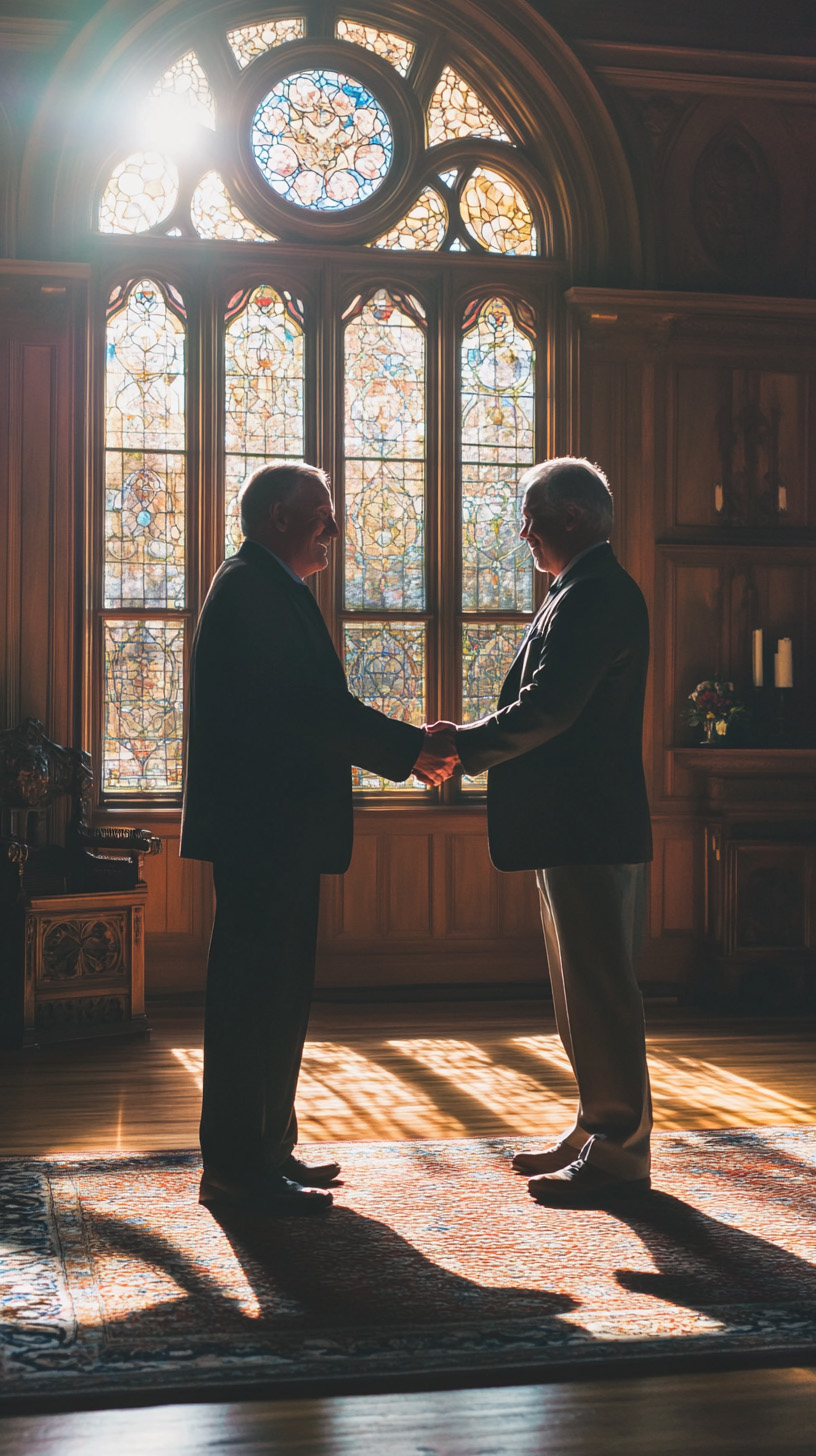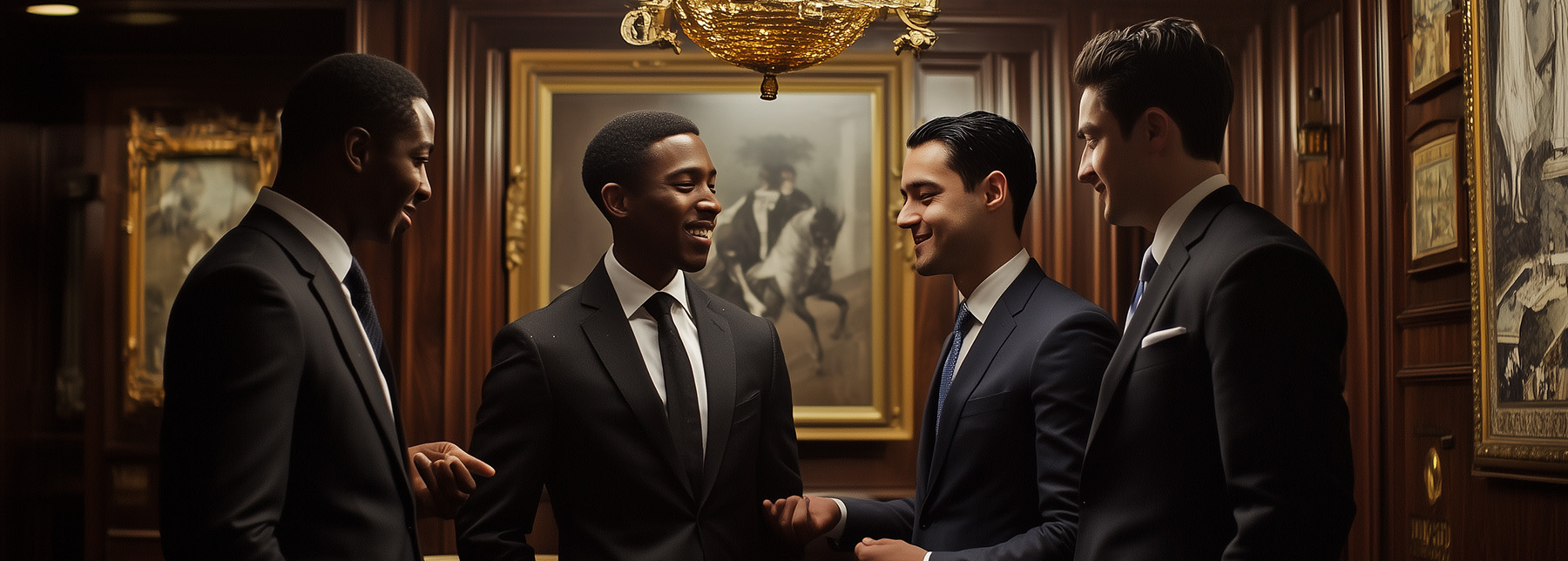
What is Freemasonry?
Freemasonry is a fraternity that guides men on a journey of self-improvement, moral development, and deeper understanding of their place in the world. Rooted in symbolism and tradition, it teaches lessons of integrity, brotherhood, and service to others. At Cornucopia Lodge No. 563, we uphold these values right here in Queens, fostering a sense of community among men from all walks of life. Through a system of progressive degrees, members explore timeless principles that encourage personal growth, connection with the divine, and a commitment to making a positive impact in their communities.
Who can become a Freemason?
Membership is open to men of good moral character who believe in a Supreme Being, regardless of religious affiliation. Applicants must typically be at least 18 or 21 years old, depending on jurisdiction, and demonstrate a commitment to self-improvement and community service. Freemasonry does not discriminate based on race, nationality, or social status, and values diversity within its brotherhood.
How old is Freemasonry?
The origins of Freemasonry can be traced back to the medieval stonemason guilds of Europe, but its modern form began in 1717 with the formation of the Grand Lodge of England. Over the centuries, it has grown into an influential fraternity with members worldwide. While there are theories linking Freemasonry to the Knights Templar or ancient mystery schools, its documented history is rooted in the Enlightenment era and the principles of self-improvement and enlightenment.
Is Freemasonry secretive?
Freemasonry is often misunderstood as a secret society, but it is more accurately described as a society with private traditions. While Masonic rituals and modes of recognition are kept confidential to preserve their integrity, the values, history, and charitable work of Freemasonry are open to the public. Many lodges actively engage with their communities and welcome inquiries from those interested in learning more.
Is Freemasonry connected to religion?
Freemasonry is not a religion and does not promote any specific faith. However, it requires its members to acknowledge a belief in a Supreme Being. The fraternity emphasizes moral living, ethical conduct, and mutual respect for diverse religious beliefs. Discussions of politics and sectarian religion are prohibited within lodge meetings to maintain harmony and unity among members.
Why does Freemasonry use symbols?
Symbols are central to Masonic teachings, serving as visual metaphors for moral and philosophical lessons. Common Masonic symbols include the Square and Compass, representing integrity and wisdom; the Hourglass, symbolizing the fleeting nature of time; and the Temple of Solomon, an allegory for self-improvement and enlightenment. These symbols help convey complex ideas in a way that transcends language and culture.
Is Freemasonry patriotic?
Freemasonry encourages loyalty to one’s country and respect for its laws, but it does not promote any specific political ideology. Many notable historical figures, including George Washington and Benjamin Franklin, were Freemasons who played significant roles in shaping democratic societies. The fraternity values civic responsibility and the betterment of society through ethical leadership and service.
What are Masonic meetings like?
Lodge meetings include ritual ceremonies, moral and philosophical discussions, and the planning of charitable activities. The structure of a meeting reinforces discipline, respect, and brotherhood among members. In addition to formal meetings, many lodges host social gatherings, community service projects, and educational lectures to foster a sense of camaraderie.
How does one become a Freemason?
To become a Freemason, one must express interest by reaching out to a lodge or a known Mason. The process typically involves an application, an interview, and a unanimous vote by the lodge members. Unlike other organizations, Freemasonry does not solicit members; instead, prospective candidates must seek out membership of their own free will.
How much does it cost to join?
Costs vary by lodge and jurisdiction but generally include initiation fees and annual dues. Initiation fees cover the cost of the degree ceremonies, while dues support lodge activities, maintenance, and charitable endeavors. While costs are modest compared to many social organizations, Freemasonry values dedication over financial means.
Is membership in Freemasonry lifelong?
Freemasonry is a voluntary association, and members may choose to withdraw at any time. However, the values and lessons learned within the fraternity often leave a lasting impact on those who join. Many members remain active for life, finding personal fulfillment and lifelong friendships within the organization.
How do I learn more?
To learn more about Freemasonry and how you can become involved, visit us or you local lodge, explore Masonic literature, or attend an informational event. Many lodges, including ours, welcome inquiries and provide opportunities for prospective members to meet current Masons and learn about the fraternity firsthand.



